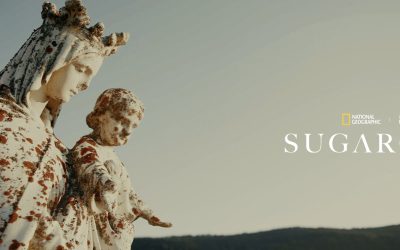
Russell Means the aboriginal activist from Pine Ridge reservation in South Dakota, stopped in Winnipeg this September. The actor, politician and former president of the American Indian Movement (AIM) spoke with the confidence of a man who has been through much. His life moved from criminal frustration to near-icon status, and the crisis lines that cross his face speak of many tales to tell. 65 winters young, as he says, and they have informed his mature philosophy of freedom and independence.
Means’ life reads like a paperback action thriller. Born an Ogala Lakota, he and other AIM members occupied Alcatraz prison in 1969, the Bureau of Indian Affairs in Washington, D.C., in 1972, and in 1973, after a siege at Wounded Knee in South Dakota, four were left dead and sixteen wounded after AIM members fought it out with federal marshals and the F.B.I. He said he was fighting for freedom for his people, and spent time in jail.
Another armed struggle took Means to Nicaragua to do battle with the Sandinista government. Through all this, he survived nine assassination attempts. He also acted in movies like “The Last of the Mohicans” with Daniel Day Lewis and “Natural Born Killers” with Woody Harrelson. Today he speaks only of peaceful negotiations to conflicts. “I believe in individual liberty through self-determination and through representative government,” he now holds, an about-turn from his turbulent past.
For a full understanding of Means’ path, one would have to walk the mile in his moccasins, as the old saying goes. For decades aboriginal people have faced a great many issues with governments of the day, with little or no success. At times frustration builds in some to the point of occupations and even rash choices. In Canada, we have only to look at the business at Oka, or Ipperwash, where aboriginal activist Dudley George was shot dead by police. There were others and there will be more.
The imposed Indian act, a deeply flawed set of laws with a life of their own, governments that refuse to hold up their fiduciary duty to the people and corrupt band councils are only a few of the frustrations that play on the lives of average Indians today. Are there more Russell Means’s out there? Yes, of course. Occasionally they appear at some venue where aboriginals are at the short end of their aboriginal rights, lands or resources. Occasionally they face a corrupt band council, where human rights, like the right to speak out without being punished, are regularly trampled.
The most frustrating office any aboriginal person ever has the misfortune to deal with is the Federal Department of Indian and Northern Affairs Canada (INAC), who have the fiduciary responsibility of protecting the rights of all First Nations’ peoples. For more years than I care to remember, native people from across Canada have petitioned the department’s intervention as a last resort regarding the loss of rights and band councils’ abuse of funds. INAC must have a warehouse a mile long and a mile wide just to store all the accumulated correspondence over the years from thousands of concerned natives. That’s all that happens. It’s stored.
Now when I hear someone say they have been in touch with INAC, I tend to keep quiet although I know by heart the song and dance INAC will put them through. The bureaucrats tell them the process to file their grievances and promise that someone will certainly look into the problem. Two to three years later, they will give up. Nothing ever happens and it’s business as usual down at the band office.
In this context, people who see wrongdoing, and who have sometimes been deprived of their homes, their incomes, or even eligibility for social services because they dared to complain, can become quite desperate. They naturally bandy about solutions that are scary, to say the least. I have been shocked by conversations with people who suggest that the only way to deal with a dictator or corrupt band official was to use physical violence. Their argument was that INAC does nothing to solve the problems and continues to dish out even more money at the time you are informing them of the blatant abuse of funding.
I do not agree with that line of thought, no matter how seemingly intractable the problems. The use of violence is not the answer. But the neglect tempts many out in Indian country to do exactly as Russell Means once did. And he has for most of his life engaged in much more honourable pursuits as an author, artist, politician and father. He believes the time for radical action is past and is promoting a positive aboriginal policy model based on economic and political freedom, personal responsibility and cultural integrity.
The changes Russell Means wants would get rid of a lot of the frustration in Indian country. If we listened to him, we wouldn’t have any trouble.



